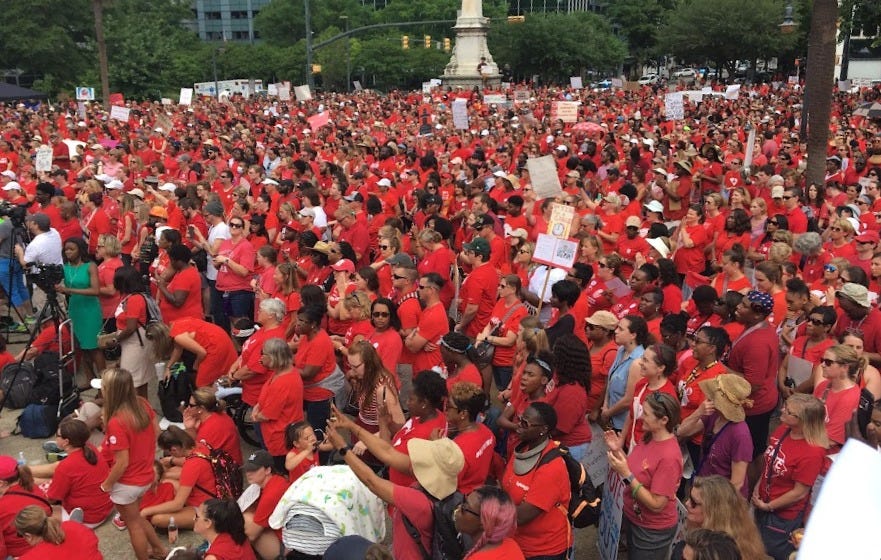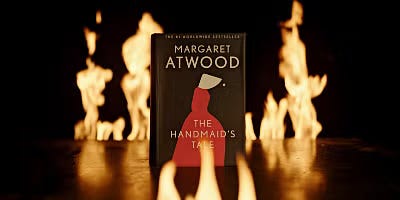Nonviolent direct action seeks to create such a crisis and foster such a tension that a community which has constantly refused to negotiate is forced to confront the issue. It seeks so to dramatize the issue that it can no longer be ignored.
-Dr. Martin Luther King, Jr, “Letter From Birmingham Jail” (1963)
This piece is available in full for free from the Center for Educator Wellness and Learning (click here to access).
I think about the 1960s a lot, because I think in many ways we’re living through them again.
Consider that the backlash to school integration created the “independent schools” movement in South Carolina, and led to a powerful collaboration, between anti-tax libertarians and anti-integration racists, to push for public funding to private (segregated) schools.
Consider that reactionary politics in the 1950s and 60s fixated on banning books, making a bogeyman out of racial progress, attacking peaceful student protesters, and using the government to crush “ideologies” that were out of step with the status quo.
Consider that the decade was perhaps most characterized by a clash between those who wanted to address systemic racial inequalities and those who wanted to return to a mythic (pre-integration) past.
Consider that one of the most virulent contemporary opponents of public schools, Chris Rufo, has explicitly encouraged his peers to model their “march through the institutions” on the Civil Rights activists of the late 1960s. (Rufo, foreshadowing our current anti-“DEI” mania in 2022, pinpointed 1968 as the origin year of “identity politics” and argued for the need to create a reactionary counter-movement just as powerful. It’s not a coincidence that near the end of the same address Rufo famously said, “To get universal school choice, you have to operate from the premise of universal school distrust.”)
And consider that individuals and groups drove much of the social progress during that decade through organized, mass direct action.
Direct action for South Carolina
The rally that took place on the South Carolina State House grounds on May 1, 2019, has been called “the largest gathering of teachers in state history.” It was organized by SC for Ed, inspired by similar actions in other states, and ultimately joined by a staggering 10,000 public education supporters, including representatives of every major state teacher group.

This was especially historic because South Carolina is by many metrics the most anti-labor state in the country. According to EPI, SC has the smallest share of union-covered employees of any state.
Other recent news:
Keep reading with a 7-day free trial
Subscribe to Other Duties (as assigned) to keep reading this post and get 7 days of free access to the full post archives.




